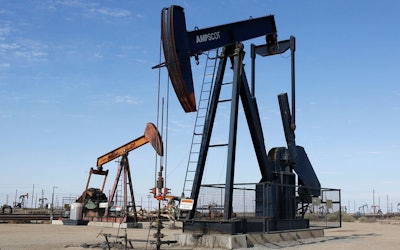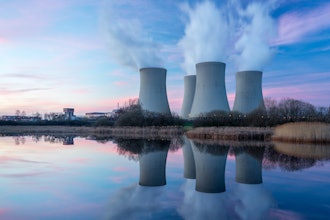
 On Monday research published online by the Bulletin of the Seismological Society of America linked March 2014 earthquakes in Poland Township, Ohio to hydraulic fracking.
On Monday research published online by the Bulletin of the Seismological Society of America linked March 2014 earthquakes in Poland Township, Ohio to hydraulic fracking.
The next day, as if the earth beneath the U.S. wanted to say, “Told you so,” the ground began to rattle Texans in their boots.
Within the span of 24 hours on late Tuesday and early Wednesday, at least 12 small earthquakes shook up Irving, Texas, a Dallas suburb. No injuries or major damages were reported, but it seems fair to say that many locals, some feeling an earthquake for the first time, were shaken.
In the immediate aftermath and search for answers about what could set off tremors in this generally un-seismic part of the world, many scientists shrugged, while the media wasted no time naming fracking as a likely culprit.
Logically, it’s not a big leap.
The release of Monday’s research was really just one additional layer added to a pile of mounting research linking hydraulic fracking to an increase in earthquakes. In fact, in 2012 the University of Texas released the results of a two-year study saying there was a correlation between fracking and small earthquakes. Why?
Fracking uses a mix of water, sand and chemicals to fracture rock formations deep underground and pull up oil and gas — but that’s not what could be setting off the tremors, researchers have said. Many believe the problem is with how some fracking wastewater is disposed. During the time of the 2012 study, about six million gallons of wastewater per month was being pumped back underground into wells beneath Texas and the belief is that the water lubricates fault lines, setting off tremors.
The big “however” here is that these earthquakes in Texas — a total of 25 have hit north Texas since October 2014 in an area where only one was recorded prior to 2008 — haven’t been much to get rattled about: Furniture shakes, it seems people are more confused than panicked, and in the most extreme demonstrations of the recent earthquakes’ not-too-awesome power, a few cracks have appeared in floors and walls. More often than not, tremors set off by fracking are not felt at all.
But those living on the fault lines have got to be wondering: Are they not dangerous, or are they not dangerous…yet?
Like everything about Texas, the fracking industry in the Lone Star State is big. If Texas was a country, it would be the third largest exporter of oil and natural gas in the world. For those living on top of the Barnett Shale basin, the largest in Texas and filled with an estimated 40 trillion cubic feet of natural gas, you are neighbors with thousands of fracking wastewater injection wells.
Anti-frackers have been quick to say that oil and gas companies are turning Americans into sitting ducks as they continue to pump and dump with unknown consequences. And while many of the other environmental complaints about fracking remain contentious, this recent swath of quakes shows that the industry’s safety record could literally be stepping onto shaky ground.
While the most dramatic quake this week in Texas registered at just 3.6, scientists believe that that the magnitude could be linked to the age of the well, and that the more we add water to any well, the greater risk for a more major quake.
Then again, pro-frackers would point out that anyone enjoying cheaper oil prices and the fruits of the shale boom — which includes most of us in the U.S. — should probably tip their cowboy hats to Texas for the resurgence of domestically produced oil and natural gas it’s brought.
So if we’re not willing to live without it and it could be dangerous to live with it, should there be tougher regulations for how wastewater from fracking is handled?
In August, the Texas Railroad Commission (RRC) began considering amendments to rules for wastewater management, including a measure that would require applicants for new disposal wells to conduct a search of the U.S. Geological Survey seismic database for historical earthquakes near proposed locations of a new disposal well. They’re also considering a measure that would allow them to suspend a disposal well permit if scientific data indicated it was causing a seismic activity.
Some have hailed Texas for being an industry leader in regulatory measures, but on its website, RRC hasn't taken a strong position on this issue, saying it has no data linking fracking to earthquakes. So, it’s hard not to wonder: Will regulatory bodies or the industry will keep pace with what could be a giant disaster lying in wait?
Will these measure do enough to protect Texans from earthquakes? Should state regulators consider closing wells in response to the recent quakes? Or should we be more aggressive in finding other ways to dispose of or recycle fracking wastewater?
Let us know what you think.






















